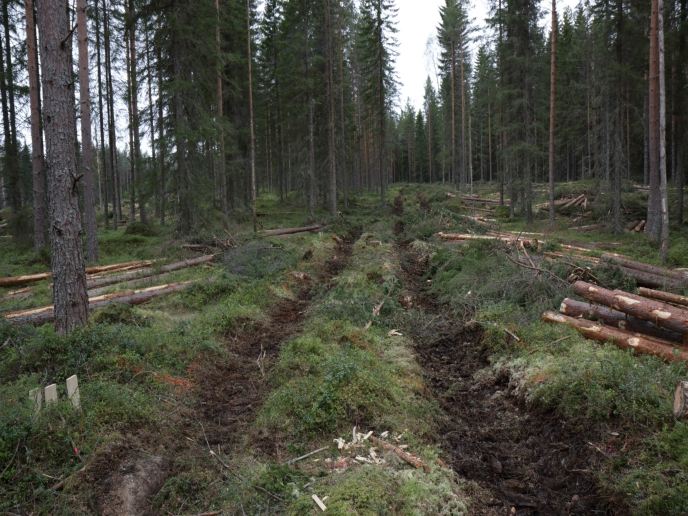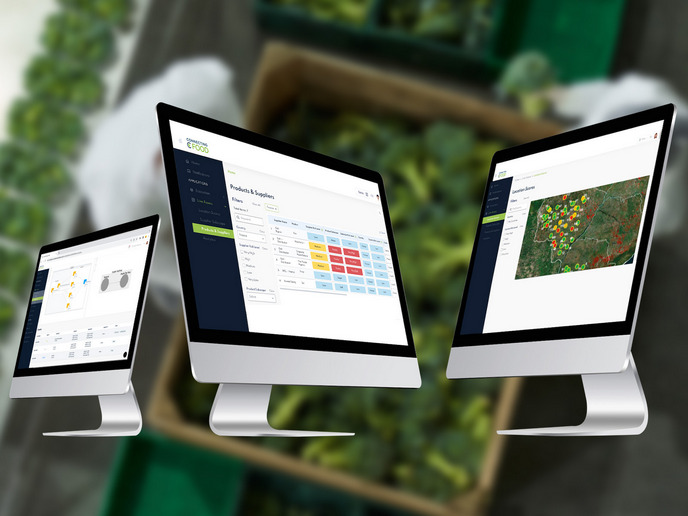Big Data helps reduce environmental impacts from forestry on woodland ecosystems
Climate change extends the number of days forests are not covered by frost and snow. These increasingly wet conditions increase the risk of rutting and compaction of the soil by vehicles and machinery during harvesting, representing a major environmental impact on forestry. Hence, methods for predicting the strength of soil under different conditions are essential to knowing when operations can proceed. The EFFORTE(opens in new window) project addressed these challenges by developing and adopting novel technologies to improve harvesting and management of forests throughout the entire forest-based value chain within the EU. “We aimed to increase understanding of soil mechanics and terrain trafficability (the ability of a given vehicle to traverse a specified terrain) to avoid soil disturbance, accelerate machine mobility, and assess persistence and rutting,” says Jori Uusitalo, project coordinator. EFFORTE received funding from the Bio-based Industries Joint Undertaking, a public-private partnership between the EU and industry.
Use of models
Researchers investigated the principles of soil mechanics, particularly the importance of soil moisture content in soil strength and soil disturbances. They then developed hydrological models that predict soil moisture content for practical operations. The models complemented other models for predicting soil moisture – strength and soil moisture and soil deformation relationships. Project partners were then able to develop and demonstrate a methodology for detecting and interpreting soil bearing capacity based on the relationship between engine power and travelling speed. “The interpretation is executed via recording of data communication in a CAN bus network of a forest machine,” Uusitalo explains. The term CAN bus refers to a controller area network communication system. Results will increase understanding of the effect of wheel loads on soil stress and compaction, converting data on soil mechanics into operational recommendations for forest practitioners. According to Uusitalo: “The key findings and recommendations of trafficability related to EFFORTE can immediately be adapted in all European countries.”
Benefits of Big Data
The consortium also sought to realise the potential of mechanisation in silviculture operations for higher productivity and efficiency in activities like tree planting and young stand management. In addition, they developed and piloted Big Data solutions to increase production while minimising environmental impacts. Adoption of Big Data applications not only improves the quality of the work it also minimises pre- and post-harvest field work. “Decreasing the proportion of forest stands with a high rate of disturbances will also lead to a greater acceptance of the forest operations among forest owners and the general public,” Uusitalo comments. More accurate prior knowledge, based on preharvest observations or Big Data applications, enables optimal scheduling of forest operations based on their sensitivity to changing conditions. This helps to address a major source of inefficiency, when machines stand idle during poor weather conditions. “Better monitoring and scheduling therefore offers an important opportunity to increase annual machine utilisation, while avoiding destruction to the environment,” observes Uusitalo. EFFORTE has therefore increased understanding of the strength of forest soil, machine terrain interaction and the resilience of soil following the movement of vehicles. The project also advanced the cost-efficiency of silvicultural operations and forest growth. Uusitalo points out: “Huge economic gains and the avoidance of soil deformation will be achieved by adopting various Big Data applications in practical forestry.”







